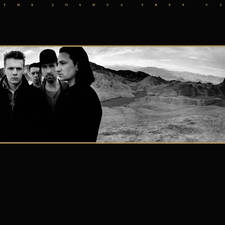The 10 greatest Eurovision songs of the 1960s and 1970s
12 March 2025, 10:45

It's Eurovision time once more, and so it's time to break out the bubbly and the scorecards.
Over the years, the Eurovision Song Contest has grown to become a pop megaforce, watched by millions around the world as the spectacle unfolds.
But we'll always have a soft spot for what could be described as the 'Golden Age' of Eurovision, when things felt rather quaint and understated compared to its present-day version.
- 'Puppet on a String' by Sandie Shaw: The making of the UK's first Eurovision winner
- How Eurovision made ABBA: From introducing Benny and Ani-Frid to their breakthrough with 'Waterloo'
- Listen to the Gold Radio 70s Live Playlist on Global Player, the official Gold app
So let's rewind to the days of flares, live orchestras and international link-ups which had even more of a delay than they do now.
Below we've rounded up the ten very best Eurovision songs from the 1960s and 1970s
-
The Shadows - 'Let Me Be the One'

The Shadows "Let me be the one" Eurovision 1975 | Archive INA
It's easy to forget that Hank Marvin and the Shadows represented the UK at Eurovision back in 1975 with this track, with Bruce Welch singing lead vocals.
In the end, the boys came second on the night, and it reached number 12 in the charts.
-
Olivia Newton-John - 'Long Live Love'

Long live love - United Kingdom 1974 - Eurovision songs with live orchestra
Four years before she became a megastar thanks to Grease, Australian country singer Olivia Newton-John represented the UK at the 1974 contest.
Olivia ended up finishing joint fourth that year, and was the last solo artist to sing for the UK until 1985.
-
Teach-In - 'Ding-a-Dong'

DING-A-DONG – TEACH-IN (Netherlands 1975 – Eurovision Song Contest HD)
Dutch entrants Teach-In continued the trend set by Lulu and others before them by recording a song with nonsensical lyrics, and it worked!
The group won the contest in 1975, a year after fellow group ABBA's triumph.
-
Dana - 'All Kinds of Everything'

1970 Ireland: Dana - All Kinds Of Everything (1st place at Eurovision Song Contest in Amsterdam)
Representing Ireland at the 1970 Eurovision Song Contest, singer Dana took home the prize with her cute ballad.
It was also a massive hit, reaching number one in the UK in the weeks that followed and selling over a million copies.
-
Sandie Shaw - 'Puppet on a String'

Eurovision Song Contest 1967 - Sandie Shaw - Puppet on a String (WINNER)
Adam Faith had to convince Sandie Shaw to take part in Eurovision in 1967. And even then, she didn't like the song, later saying: "I hated it from the very first oompah to the final bang on the big bass drum. I was instinctively repelled by its sexist drivel and cuckoo-clock tune."
Despite all that, the already-massively popular Sandie easily won the contest, and scored a UK number one single in the process.
-
Lulu - 'Boom Bang a Bang'

Lulu - Boom Bang-a-Bang | Live at the Eurovision Song Content (1969)
Pop legend Lulu took on the Eurovision challenge in 1969, having already become an international star by this point.
Back then, it was possible for joint winners of the competition, and Lulu had to share with three other entries (Spain, France and the Netherlands).
It reached number two in the UK, and was later the theme tune for sitcom Him & Her.

Lulu breaks down her biggest songs | Gold's Hall of Fame
-
Brotherhood of Man - 'Save Your Kisses for Me'

Eurovision 1976 - United Kingdom
Who can forget the sight of Brotherhood of Man's white and red jumpsuits with matching berets, standing still and singing with very minor arm and leg choreography Easy, but darned effective.
Brotherhood of Man swept the board in 1976, and achieved one of the best-selling Eurovision hits of all time, and the biggest ever in the UK.
-
Cliff Richard - 'Congratulations'

Cliff Richard - Congratulations (Eurovision Song Contest, 1968)
The pop prince was so close to fulfilling his Eurovision dream in 1968, and we're still quite amazed he didn't win.
Cliff Richard finished second, losing to Spain's 'La, la, la' by just one point. However, 'Congratulations' went on to become a far more successful hit around Europe.
-
Domenico Modugno - 'Nel blu, dipinto di blu'

1958 Italy: Domenico Modugno - Nel blu dipinto di blu ("Volare") 3rd place - Second performance
OK, we're actually dipping outside of our '60s and '70s remit for this one, but we can't ignore this classic!
Arguably the most successful song in Eurovision history, this Italian ditty only came third at the time in 1958.
However, it later sold 22 million copies around the world, and was covered by countless artists (often using the shortened title 'Volare'), from Dean Martin to David Bowie.
-
ABBA - 'Waterloo'

ABBA - Waterloo (Eurovision Song Contest 1974 First Performance)
Well, where do you start? It's a song that transcends Eurovision, and launched one of the world's biggest and most popular pop groups of all time.
ABBA's tune won 1974's contest in Brighton. It has consistently been voted the greatest Eurovision song of all time, and who are we to argue?












